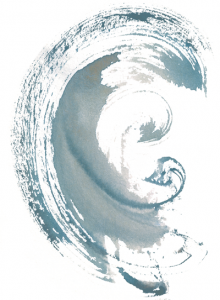
Requesters for psychotherapy are first moved by the impossibility to continue to live like this. Pushed by their circle of acquaintances, encouraged by the media, they decide to « go see someone » as it is said most frequently. Do « something », see « someone », the vague of the terms shows well the hesitation of the spirits in front of this novelty. But see who ? A doctor ? A psychiatrist ? Even when the suffering express itself by means that medicine and psychiatry had already taken, depressive states, suicide attempt, neurotic symptoms, somatic problems, even psychotic defenses, the requesters don’t content themselves anymore with answers sending them back to more consumption, whether it is medicine or entertaining activities, or to more resignation. They often already passed through this and discovered the limits of modern medicine, that what « is working well » a first time becomes quickly insufficient when life serves up again the dish of suffering.
The question asked by these persons, neither psychiatry and even less medicine are ready to treat it nor maybe even to hear it.
Medicine is based on the notion that there is pathological disorders deviating from normality that it must heal by its intervention. Which she’s accomplishing very well in it’s own field. For the psychopractitioner, there is neither normal nor pathologic. There is a suffering with which the person feels cantilevered with, or in disagreement. There is a state of inner war.
Psychotherapy aims to reput in circulation all the energies immobilized in this war to build a peace situation, by possibly integrate phenomenons which, seen from outside, could seem abnormal. To do so it leans essentially on the personal resources of the patient whom she gives itself the purpose to free or clear up. Medicine seeks for restore a previous health state or a satisfying life comfort. Psychotherapy generally succeeds to a new state of the person going with deep reorganizations variable in his life and his personality. There is always a moment in the psychotherapy where the need of a change stands out but it is making sense only regarding the person itself, and can only resulte from its own dynamic, which excludes any manipulation and any external pressure. The psychopractitioner could not have any project for his client, in his place. We are on the opposite of a sectarian approach.
If psychiatry generally exceed the symptomatic vision of psychologic disorders, she cares about helping the patient to negotiate his relation with the world and his adaptation, by taking into account all the parameters involved. Psychotherapy is a matter of another logic, which is to help the patient to make his choices according to a restored inner coherence. That psychopractitioner to come have to acquire psychopathological notions is hardly debatable and almost all psychopractitioner training schools are providing such teaching. It is an original training looking a lot like this of the psychoanalists and raises the same technical questions.
At this subject, no one will deny that psychotherapy owes a lot to psychoanalysis. It is keeping from it a basic conceptual corpus also than the absolute necessity of a work on itself and a supervision by peers.
Like her it widely calls to disciplines ignored by the medicine education, like anthropology, history, linguistics, mythology, artistic creations. Their are as necessary as psychophysiology or psychopathology.
But psychotherapy has engaged in an experiential approach, constantly renewed. In front of an emergence of demand from a vast population coming from all sociocultural horizons, it was able to complete itself with approaches that psychoanalysis is ignoring or rejecting. Amongst the most caracteristic we can quote the accent put on the here and now, the emotional approach, the body work, respiratory technics, the therapeutic touch, the practice of residential internships, etc…
Its functioning allows it to integrate various and evolving working devices because often engendered by the meeting of the patient and the practitioner.
To face this new demand, it builded detailed professional training programs spreading through many years of theorical and practical work with evaluation procedures and well defined supervision. The multiplicity of its schools gives an idea of its wealth. With time and experience, trainings are interpenetrating and fertilizes each other and the professional organisms are setting accreditation procedures and qualified practitioners lists.
The seek for personal self-fulfillment which becomes clear in all western society results in a deep cultural change. Whether it is responded to it anyway else than by drugs using or ritualized gestures, that a return to previous order or collective standards is not aimed, this also was never seen. The motion leading these persons tend to make them pass from a logic of having to a dynamic of being and their approach, for most of them, is made in a sense of autoappointment and an assumption of his own life and his commitments.
